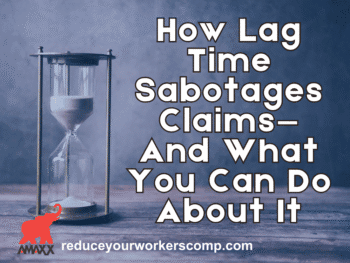A recent decision, “Maw v. Wal-Mart (3d Dept. 1/13/11)”, is extremely useful for employers, resulting in lower comp costs and fewer hearings and appeals – but ONLY if employers take a few minutes to write a short note and attach a few documents.
Waiting for the carrier to make the request will result in the usual outcomes – delay, additional hearings, unnecessary trials and appeals, and a “compromise” resolution vastly more expensive than what the law allows.(WCxKit)
The decision affects workers under the age of 25 when they are injured. In such cases, a portion of the award is not based on what the employee was earning at the time of injury but what they could expect to earn in the future (WCL, Sect 14(5), known as “wage expectancy”.
For decades, the Board simply rubber stamped a max rate award, taking little relevant testimony, in view of the fact that max rates were quite low until the 1990s and made little difference to workers young or old. Currently, max comp rates are seven times higher than in the 70s and 80s and most of the 90s, making accurate documentation of wages and earning capacity vital.
The rule is, for younger workers, that comp rates for periods of temporary disability are based on the actual earnings of the worker. For “permanent partial disability” awards, on claim with extended disability, the rate, according to the “Maw” decision is based on expected wages, at age 25, in the same, or similar, employment engaged in at the time of injury.
In the past, a younger worker in an entry level, often part time, job was permitted to testify as to what job they “hoped” to have sometime in the future. A comp rate, always max, would be fixed based on that hope. The recent decision reverts to old case law and requires that a job in similar employment be the basis.
Younger workers account for a large number of injuries. An employer should plan for documentation of a claim by securing payroll records of similar workers who are in the same work but are over age 24, “sanitizing” the records (delete names, addresses and SS#s) and sending copies of the records to the carrier and WCB as soon as possible (BEFORE the first hearing).(WCxKit)
In that way, a trial and appeal may be unnecessary and reasonable benefits will not be held up.
Author: Attorney Theodore Ronca is a practicing lawyer from Aquebogue, New York. He is a frequent writer and speaker, and has represented employers in the areas of workers' compensation, Social Security disability, employee disability plans, and subrogation for over 30 years. Attorney Ronca can be reached at 631-722-2100.
FREE TOOLS
WC IQ TEST: http://www.workerscompkit.com/intro/
WORK COMP CALCULATOR: http://www.LowerWC.com/calculator.php
MODIFIED DUTY CALCULATOR: http://www.LowerWC.com/transitional-duty-cost-calculator.php
JOIN WC GROUP: http://www.linkedin.com/groups?homeNewMember=&gid=1922050/
SUBSCRIBE TO: Workers Comp Resource Center Newsletter
Do not use this information without independent verification. All state laws vary. You should consult with your insurance broker or agent about workers comp issues.
SUBSCRIBE TO: Workers Comp Resource Center Newsletter
Do not use this information without independent verification. All state laws vary. You should consult with your insurance broker or agent about workers comp issues.
©2010 Amaxx Risk Solutions, Inc. All rights reserved under International Copyright Law. If you would like permission to reprint this material, contact Info@WorkersCompKit.com.
























